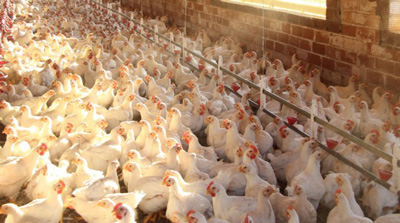
Corona Virus impact on the markets

By Tertius Liebenberg
MD of Capricorn Asset Management.
Given the current world events and the WHO declaring the COVID-19 outbreak a Pandemic, Capricorn Asset Management is sharing this information with their clients and stakeholders to assist them in making a sensible choice as to how to respond to the current situation during this time of uncertainty.
The short and sweet
The coronavirus outbreak is having an extreme impact on the global financial markets. The real cost to the actual economies is still unknown, and the future effects cannot be accurately determined as the situation is still developing. We recommend that investors consider their long-term investment goals and strategic allocation before making any changes to their portfolios. Volatility in the markets are high and shall remain high until the virus has stopped spreading, only after that would it be possible to evaluate if the current market prices reflect the intrinsic values of the assets they represent. We strongly discourage any form of speculation on the market – now and always.
The long and thoughtful
The outbreak of the coronavirus, as well as some other recent geopolitical tensions, have caused a significant sell-off in global financial instruments and particularly all equities. Therefore, a reduction in the market value of client portfolios that have exposure to non-cash instruments (e.g. property, bonds and equities) can be seen. Please take the time to read the below information, as it will assist you in making a sensible choice as to how to respond to the current situation:
1. What we know
The coronavirus is having material effects on the global economy. All major stock markets across the globe are experiencing a significant sell-off. Although most major central banks are expected to implement rate cuts to stimulate their economies, the negative economic effects will remain evident for a couple of months. This stimulates the fear of a global recession. We also know that there will be a market correction when conditions become favourable. When this happens, a lot of valuable assets may be available at great discounts. Herein lies the opportunity.
2. What we don’t know
We do not know where the “bottom” will be. Our best indication will be when the number of new cases decreases or if a vaccine is developed. Until then, volatility will remain high. We are also unsure about the extent of the damage the virus is having on the economy, local and global, as the situation is still developing.
This uncertainty is the main catalyst for the global sell-off in equities. However, as the respective countries will publish various GDP figures for quarter one within the next two months, the effects will be measurable to a great extent, and better fundamental analysis can be carried out.
3. What is at risk
Money Market funds are conservative funds and will not be impacted by the global sell-off in equities. Any invested capital is not at risk. However, the actions that local central banks may take in response to the situation (e.g. to cut lending rates), will dampen the expected return that these funds can achieve in the future. These Funds are: Capricorn Investment Fund, Capricorn Corporate Fund, Capricorn Selekt Fund, Capricorn Enhanced Cash Fund and Capricorn High Yield Fund.
Funds with a high percentage of local and international equity exposure, as well as property and to a lesser extent local bonds, are most at risk.
Although we strongly believe a correction will take place in due course, invested capitalis at risk in the short term. These Funds are: Capricorn Equity Fund, Capricorn Property Fund, Capricorn Bond Fund, Capricorn International Fund, Capricorn Premier Fund and Capricorn Managed Fund
4. What is the best action going forward
Just as this crash was impossible to forecast, in the same way, the time and magnitude of the correction (if any) is just as uncertain. However, the greatest mistake an investor can make now is to switch out based on fear as it would result in the realization of book losses thus far incurred. More importantly, investors should consider their investment horizons and investment goals before making any short-term decisions.
A similar situation was witnessed during the financial crash of 2008. The graph below shows the MSCI World Index, from 2008 to date. During the period from 30 May 2008 until 06 March 2009, the index was down around 53%. (At the moment we are faced with a 26% drop on the same index.)
However, the recovery from 06 March 2009 until 21 February 2020 is over 330%. Therefore, if viewed within the context of a 5-10-year investment horizon, it is not as significant. Volatility and uncertainty are always prevalent in the market. Consequently, we strongly discourage any form of speculation on the market.
We highly recommend that investors revisit their personal investment goals, and specifically consider their investment horizons (the timeframe of their planned investments).
Care should be taken not to make a short-term decision on a long-term asset. While equity exposure is the source of the decrease in market value, it is only equity exposure that can repair the damage in the shortest timeframe. For example, should an investor decide to switch from the Equity Fund into the Investment Fund, the loss of 26% (from 21 February to 12 March) will be locked in, and the investor will only recover at the current rate of around 7% in money market funds (assuming no change in central bank rates).
This will take the investor around four years to recover the lost capital. A market correction can take considerably less time.











































